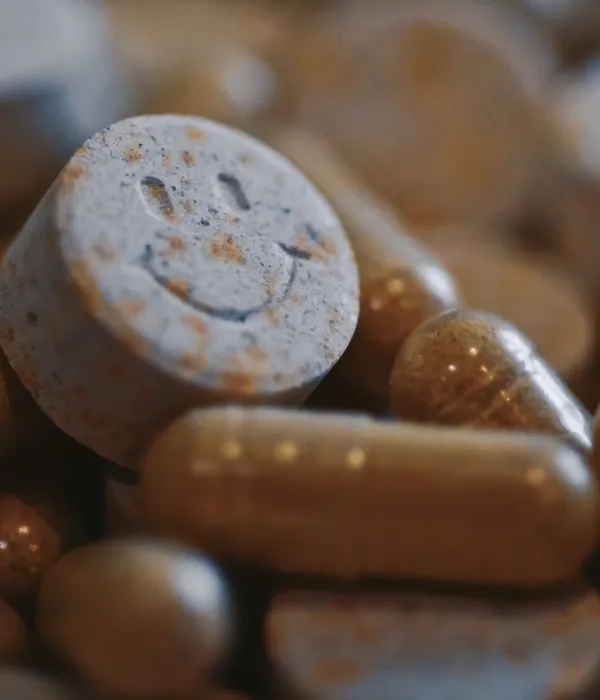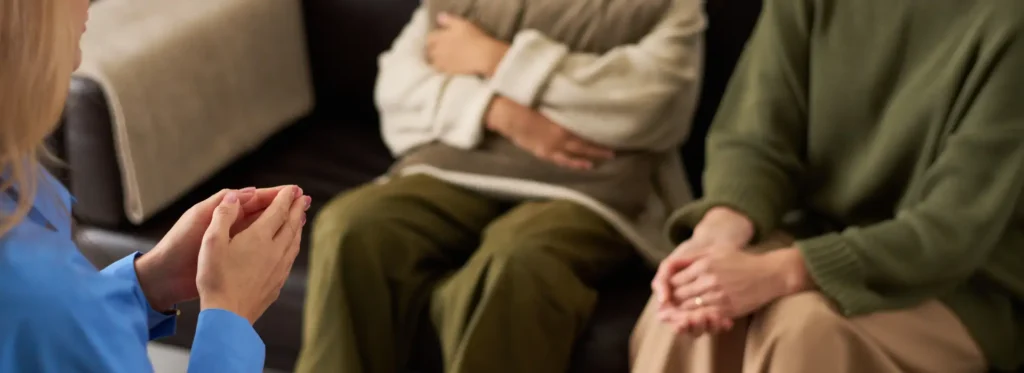Fentanyl Addiction Treatment Los Angeles
The Need for Fentanyl Rehab
Fentanyl is a powerful synthetic opioid that has dramatically worsened the addiction crisis across the U.S. It is approximately 50-100 times stronger than morphine, which means even small doses are extremely dangerous. Most overdose deaths now involve illicitly manufactured fentanyl, often mixed into heroin, cocaine, or counterfeit pills.
Fentanyl addiction has become a critical public health issue, particularly in major cities like Los Angeles. At Lost Angels, we offer a fentanyl addiction treatment program in Los Angeles built with compassionate, evidence-based support.

The Dangers of Fentanyl Use
Fentanyl is an incredibly potent drug that can create both physical and psychological dependence in a short amount of time. Its presence is often hidden, making it a major contributor to overdose deaths in the United States. The risks grow even more dangerous because fentanyl can silently suppress breathing and impair basic functions before someone realizes what’s happening.
For many, withdrawal symptoms feel unbearable. They can be so intense that using again feels like the only way to cope. At Lost Angels, our fentanyl addiction treatment begins with medically supported detox. Paired with individualized treatment plans, our care helps rebuild trust and support each client’s first steps toward healing.
What to Expect During Fentanyl Addiction Treatment in Los Angeles
We offer a full spectrum of treatment services that support clients at every stage of recovery. At Lost Angels, our treatment program aims to create a life free from substance abuse.
Detox is often the first step in overcoming fentanyl abuse. The withdrawal symptoms associated with fentanyl can be severe, but our medical team ensures a safe and closely monitored environment. A medically supervised detox lays the groundwork for everything that follows, especially in cases of opioid dependence.
Our residential treatment program offers 24/7 support, structured routines, and personalized fentanyl treatment. Clients live on-site in a peaceful setting while receiving daily therapy and group support. This inpatient treatment model is ideal for those needing intensive care away from everyday triggers.
Substance abuse and mental health often go hand in hand. People struggling with fentanyl addiction may also live with co-occurring conditions such as depression, anxiety, or PTSD. If left untreated, these conditions can increase the risk of relapse. Our dual-diagnosis treatment program addresses both sides of the struggle. This integrated approach to treatment supports long-term recovery and overall well-being.
Healing is both clinical and personal. Our personalized treatment includes art therapy, yoga, mindfulness, and other holistic practices that help reconnect the body and mind. We tailor care to your needs, and each therapy program supports long-term sobriety. Our team believes these practices enhance traditional treatment and help clients reimagine a life free from fentanyl.
Continuing the Path to Recovery
True recovery doesn’t stop at detox or inpatient care. Our treatment services extend beyond initial rehab to help clients build sustainable lives.
Outpatient and Step-Down Programs
After residential rehab, many clients continue in outpatient treatment. This may include partial hospitalization or intensive outpatient programs that offer structure while allowing more independence. These treatment settings are essential in helping clients adjust to real life while staying committed to sobriety. They allow flexibility without sacrificing the focus on recovery.


Sober Living and Peer Support
At Lost Angels, we also connect clients with trusted sober living environments and peer groups. These supportive communities are important for maintaining momentum after completing a rehab program. They also serve as a space to build healthy routines and connect with others who truly understand.
Aftercare Planning
Before completing treatment at Lost Angels, every client is carefully guided through a personalized aftercare plan. This roadmap may include therapy referrals, continued medication support, and strategies to prevent relapse. Offering a clear path forward helps ease the transition from structured care to everyday life.


Family Involvement
Addiction affects families, not just individuals. Lost Angels offers family therapy and education programs to support healing at home. Rebuilding relationships, restoring trust, and learning better communication are important parts of recovery. With guidance and support, families can become a steady source of strength throughout recovery.
What Makes Our Addiction Treatment Center Different?
Not every addiction treatment center is equipped to handle the complexities of fentanyl. Lost Angels takes a personalized and evidence-based approach for your safety and comfort.
From medical staff to therapists, our team provides empathetic, non-judgmental care. We understand the trauma and fear often associated with fentanyl addiction. As such, our team offers a safe space where clients can heal without shame. Each member of our staff is trained in addiction recovery and provides treatment with respect and humanity.
Your story is unique, which means your care should be too. At Lost Angels, we offer personalized treatment plans built around each client’s situation. Our treatment program offers flexible support, whether you’re new to rehab or seeking help after relapse.
During our substance abuse treatment, clients benefit from a calm, secure environment where they can focus on getting better. This safe space helps people struggling with addiction build confidence in their ability to overcome addiction. The serenity of our space fosters clarity and focus during the most vulnerable stages of recovery.
Why Fentanyl Addiction Happens
Addiction has become a serious concern across Los Angeles County, and fentanyl plays a major role. Fentanyl use often begins with a legitimate medical need, but it can quickly spiral into dependence.
Because fentanyl is a powerful synthetic opioid, it reprograms the brain’s reward system by increasing dopamine release and reinforcing compulsive behavior. People who struggle with fentanyl addiction find it harder to feel joy or balance emotions without the drug.
At Lost Angels, we address underlying issues that fuel addiction. Our addiction treatment services offer holistic care that heals the mind and body, not just the symptoms of substance use.

Recognizing the Signs of Fentanyl Addiction
Knowing what to look for can help save a life. Fentanyl addiction often progresses quickly, making early intervention crucial.
Physical and Behavioral Changes
If someone is addicted to fentanyl, you may notice drowsiness, slow breathing, pinpoint pupils, or erratic behavior. They might also withdraw from loved ones or lose interest in activities. These changes are often the body’s way of signaling that something is seriously wrong.
Psychological Symptoms
Fentanyl abuse may cause anxiety, depression, confusion, or extreme mood swings. These emotional shifts can be distressing both for the person and their family. Seeking substance use treatment early can prevent these symptoms from becoming overwhelming.
Increased Tolerance and Cravings
Those struggling with fentanyl need more of the drug over time to feel its effects. Their thoughts and behaviors may revolve around obtaining and using fentanyl, often at great personal cost. These cravings can be dangerous and are a sign that treatment is urgently needed.
Withdrawal Symptoms
When the drug is not available, they may experience nausea, chills, agitation, muscle aches, diarrhea, anxiety, and insomnia. Fentanyl withdrawal is not just unpleasant. It can be dangerous without proper medical support. A structured detox through an inpatient drug rehab program is often the safest route.
When to Seek an Addiction Treatment Program
Knowing when to seek help can be a scary first step. But if fentanyl use is affecting your health, relationships, or daily life, it may be time to consider a professional treatment program. The earlier you seek addiction treatment, the greater the chance for lasting recovery.
If you’ve made multiple attempts to stop fentanyl use and keep relapsing, this is a strong indicator that structured addiction treatment is needed. Lost Angels offers a rehab program that provides medical supervision and support to help you break free from addiction.
Fentanyl can take a serious toll on both your body and mind. If you’re noticing increased anxiety, depression, chronic fatigue, or physical symptoms like trouble breathing or heart issues, seeking treatment is critical. Our dual diagnosis treatment program addresses both addiction and mental health for full-spectrum care.
When addiction starts affecting your job, finances, relationships, or sense of self, it’s time to reach out. Fentanyl addiction treatment at Lost Angels can help you rebuild what was lost and rediscover a healthier, more stable life.
One of the most painful parts of fentanyl addiction is the sense of isolation. If you feel stuck, ashamed, or like you’ve run out of options, remember: there is always a way forward. Our treatment center is here to help you regain confidence and connection on your journey to recovery.

Find Hope and Healing at Lost Angels
You don’t have to face fentanyl addiction without support. At Lost Angels, we offer addiction treatment in Los Angeles that is compassionate, personalized, and rooted in evidence-based care.
Our team is here to help you reclaim your life free from substance abuse. Every step of your recovery journey is supported by experts who understand. If you or a loved one is searching for fentanyl rehab in Los Angeles, we will always be here to help.
Learn more about our fentanyl addiction treatment options and take the first step in overcoming fentanyl addiction today.
Related Treatments
Frequently Asked Questions
What is the first step in fentanyl addiction treatment in Los Angeles?
The first step in overcoming fentanyl addiction is often a medically supervised detox. This helps manage fentanyl withdrawal symptoms safely while preparing the individual for long-term treatment. At Lost Angels, detox is followed by individualized care in a residential treatment setting.
How long does fentanyl addiction treatment in Los Angeles usually take?
The length of a fentanyl rehab program can vary depending on the severity of addiction and any co-occurring mental health conditions. Residential treatment typically lasts 30 to 90 days, but some clients benefit from longer care or step-down outpatient programs.
Does Lost Angels offer dual diagnosis treatment?
Yes. Lost Angels specializes in dual-diagnosis treatment for those dealing with both fentanyl addiction and mental health issues. Our integrated approach addresses the full scope of each client’s needs for a stronger, more sustainable recovery.
Can family members be involved in the treatment process?
Absolutely. We believe family involvement is essential to recovery. Through family therapy, education, and support programs, we help loved ones heal alongside the individual receiving care.







